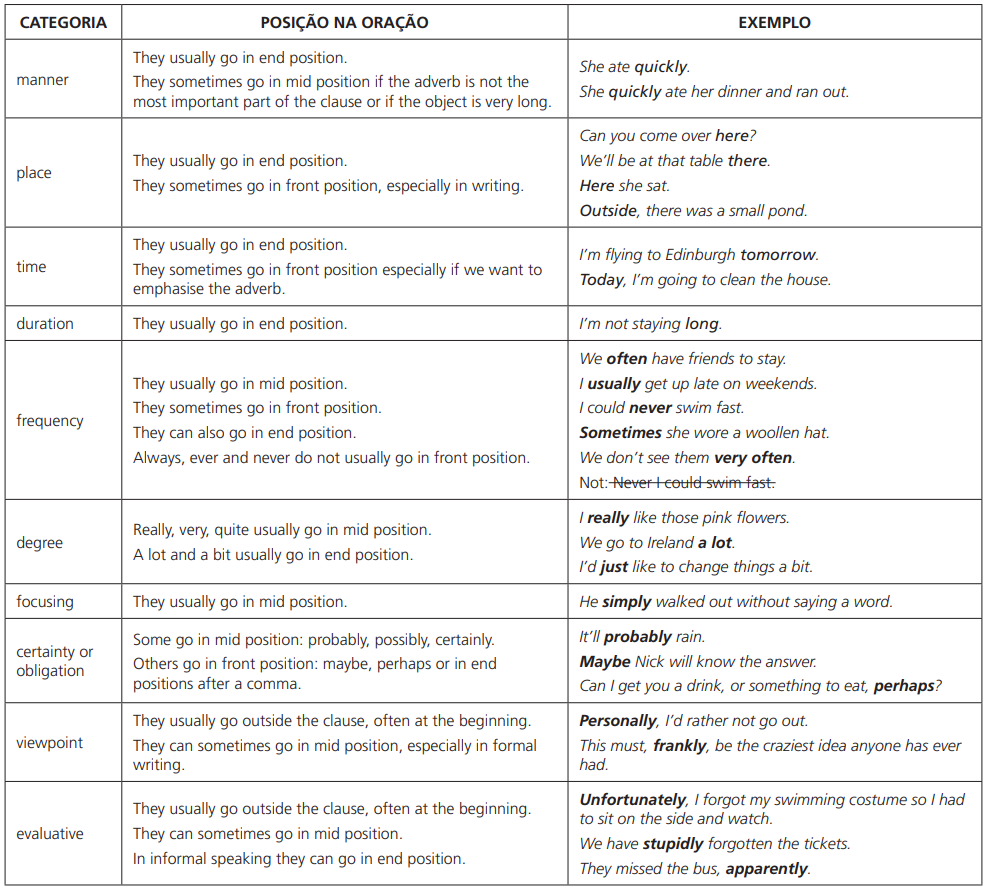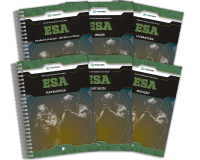As categorias de advérbios são:

https://dictionary.cambridge.org/pt/gramatica/gramatica-britanica/adverbs-and-adverb-phrases-position?q=manner
- Formação dos advérbios
Formamos a maioria dos advérbios (principalmente de modo e de intensidade), acrescentando –se ly ao adjetivo.
Exemplo:
slow → slowly
general → generally
clear → clearly
extreme → extremely
heavy → heavily (o y final torna-se i),
easy → easily
comfortable → comfortably (a terminação able e ible perdem o e final)
marketable → marketably
simple → simply
Note: good → well
- Adjetivos e advérbios que apresentam a mesma forma:
Exemplo:
fast → fast – That was a fast train. That train goes fast.
hard → hard – It’s a hard homework. He has worked hard.
high → high (alto) That is a high mountain. Some birds fly high.
low → low (baixo) She spoke in a low voice. Can you speak low?
late → late (atrasado/tarde, tardio) Don’t come at a late hour. Don’t come late.
early → early (adantado, cedo) Mary is early today. They got up very early.
enough → enough (sufciente, sufcientemente) Do you have enough money to lend me? You are smart enough to do it.
- Advérbios com duas formas e significados diferentes.
Exemplo:
near → perto – He came near.
nearly → (almost) quase – He nearly died.
high → alto – It is flying high.
highly → muito – She was highly admired.
hard → árduo – He works hard.
hardly → (barely, scarcely) mas, quase nunca – He hardly works.
wide → totalmente – Our eyes were wide open.
widely → bastante – They differed widely.
late → tarde – He arrived late.
lately → ultimamente – I haven’t seen him lately




